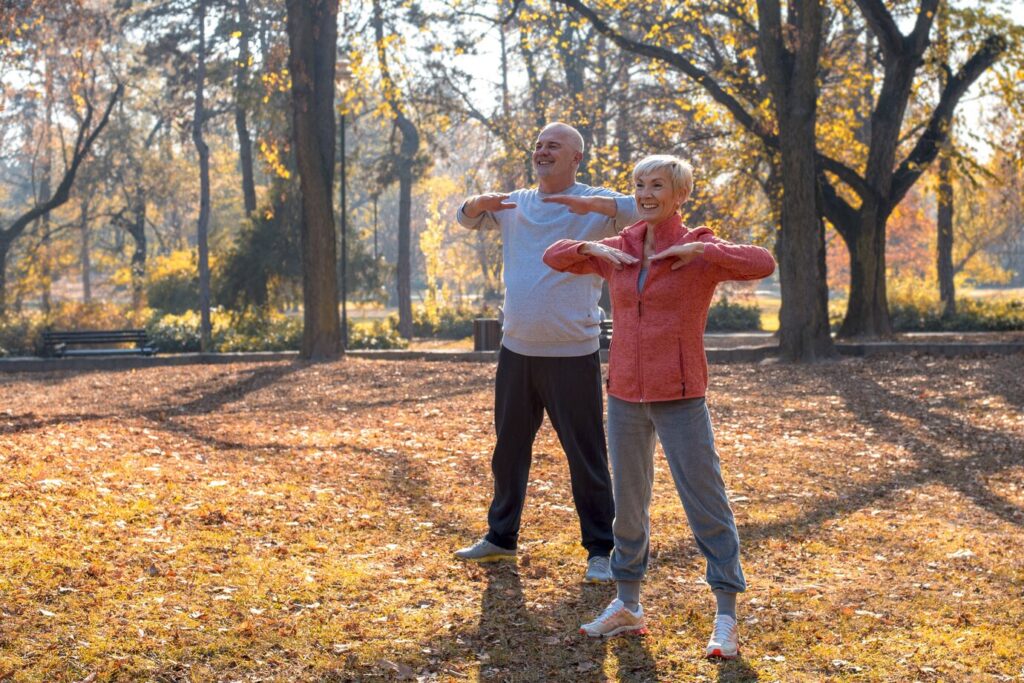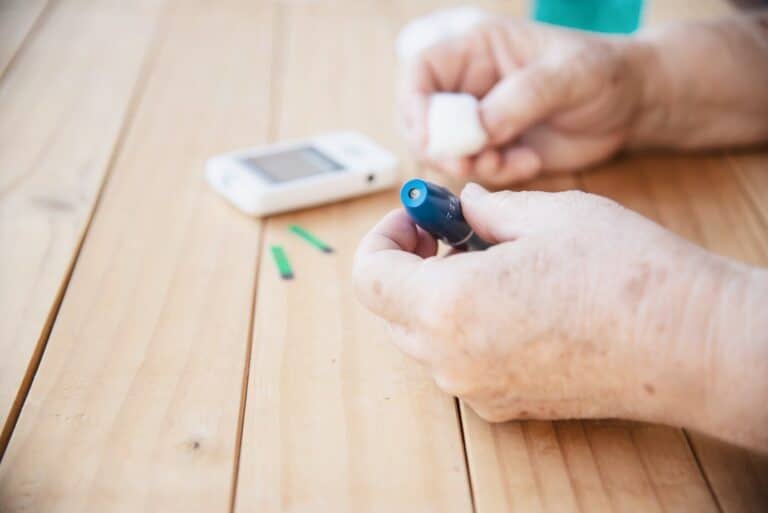Our bodies undergo various changes as we age, and the risk of developing chronic conditions like diabetes increases. Diabetes, a condition characterized by high blood sugar levels, can lead to serious health complications if left unmanaged. However, there are proactive steps seniors can take to prevent the onset of diabetes and maintain their health and vitality. This guide by The Inn at The Terraces will explore practical strategies tailored specifically for seniors to prevent diabetes and promote overall well-being.
Understanding Diabetes:
Diabetes is a metabolic disorder that affects how the body processes glucose, the primary energy source. There are two main types of diabetes: type 1, which is typically diagnosed in childhood or adolescence, and type 2, which is more common in adults and often associated with lifestyle factors. Seniors are particularly susceptible to type 2 diabetes due to age-related changes in metabolism and decreased physical activity levels. By understanding the risk factors and symptoms associated with diabetes, seniors can take proactive measures to prevent its onset.
Maintaining a Healthy Diet:
One of the most effective ways to prevent diabetes is by adopting a balanced and nutritious diet. Seniors should focus on consuming whole foods such as fruits, vegetables, lean proteins, and whole grains while limiting their intake of processed foods, sugary snacks, and high-fat meals. Incorporating fiber-rich foods into their diet can help regulate blood sugar levels and promote satiety, reducing the risk of overeating and weight gain. Additionally, seniors should aim to stay hydrated by drinking plenty of water throughout the day, as dehydration can exacerbate diabetes symptoms.
Regular Physical Activity:
Regular exercise is essential for managing weight, improving insulin sensitivity, and reducing the risk of diabetes in seniors. Walking, swimming, yoga, or tai chi activities can help seniors maintain mobility, strengthen muscles, and enhance cardiovascular health. Aim for at least 30 minutes of moderate-intensity exercise most days of the week, and incorporate strength training exercises to preserve bone density and prevent age-related muscle loss. Remember, there is always time to start exercising; even small amounts of physical activity can have significant health benefits.

Regular Physical Activity
Monitoring Blood Sugar Levels:
Seniors should regularly monitor their blood sugar levels to detect abnormalities early on and make necessary lifestyle adjustments. Home blood glucose monitoring kits are widely available and easy to use, allowing seniors to track their levels conveniently. By keeping track of their blood sugar readings, seniors can identify patterns, assess the impact of diet and exercise, and work closely with their healthcare provider to develop a personalized diabetes prevention plan.
Stress Management Techniques:
Chronic stress can negatively affect overall health and increase the risk of developing diabetes in seniors. Relaxation techniques such as deep breathing exercises, meditation, or gentle stretching can help seniors manage stress levels and promote emotional well-being. Prioritizing self-care activities, maintaining social connections, and seeking support from loved ones can also reduce stress and overall resilience.
Maintaining a Healthy Weight:
Maintaining a healthy weight is crucial for diabetes prevention in seniors. Excess weight, especially around the abdomen, is a significant risk factor for type 2 diabetes. Seniors should aim to achieve and maintain a healthy body weight through a balanced diet and regular exercise. Even modest weight loss can improve insulin sensitivity and overall metabolic health, reducing the risk of diabetes and its complications.
Regular Health Check-ups:
Seniors should prioritize regular health check-ups and screenings to monitor their overall health and detect any potential risk factors for diabetes. Routine visits to healthcare providers allow seniors to discuss concerns, review medications, and receive guidance on managing chronic conditions effectively. During these visits, healthcare providers can also conduct blood tests to assess blood sugar levels and screen for diabetes or prediabetes. Early detection and intervention are vital in preventing the progression of diabetes and minimizing its impact on seniors’ health.
Medication Management:
Medication management plays a crucial role in the prevention and management of seniors with preexisting medical conditions or those at high risk of developing diabetes. To control blood sugar levels, seniors should follow their healthcare provider’s medication recommendations, including insulin or oral medications. It’s essential to take medications as prescribed, attend regular follow-up appointments, and promptly communicate any concerns or side effects to healthcare providers. Additionally, seniors should be aware of potential drug interactions and consult healthcare providers before starting any new medications or supplements.
Educational Resources and Support Groups:
Access to educational resources and support groups can empower seniors to take control of their health and make informed decisions about diabetes prevention and management. Community organizations, healthcare facilities, and online platforms offer a wealth of information, including articles, videos, workshops, and peer support groups focused on diabetes prevention and lifestyle management. Seniors can benefit from connecting with others who share similar experiences, exchanging practical tips and strategies, and receiving encouragement and motivation to stay on track with their health goals.
Social Engagement and Mental Well-being:
Social engagement and mental well-being play integral roles in overall health and diabetes prevention for seniors. Maintaining strong social connections, participating in meaningful activities, and engaging in hobbies and interests can promote emotional resilience and reduce the risk of depression and anxiety. Seniors should prioritize activities that bring them joy and fulfillment, whether spending time with loved ones, volunteering in the community, or pursuing creative pursuits. By nurturing their mental well-being and staying socially connected, seniors can enhance their overall quality of life and reduce stress, contributing to diabetes prevention and overall health.
Environmental Factors and Lifestyle Modifications:
Seniors should also consider environmental factors and lifestyle modifications that can impact their risk of developing diabetes. For example, reducing exposure to environmental toxins and pollutants, such as air pollution and chemical additives in food and household products, can support overall health and reduce the risk of chronic diseases like diabetes. Making conscious choices to prioritize organic and locally sourced foods, reduce consumption of processed and packaged foods, and minimize exposure to harmful chemicals can contribute to a healthier lifestyle and lower risk of diabetes.
Family and Caregiver Involvement:
Family members and caregivers support seniors’ health and well-being, including diabetes prevention and management. Seniors should involve their loved ones in discussions about their health goals, share information about diabetes prevention strategies, and enlist their support in making healthy lifestyle changes. Family members and caregivers can provide practical assistance, encouragement, and accountability, helping seniors stay motivated and on track with their health goals. By fostering a supportive environment at home and involving loved ones in the journey towards diabetes prevention, seniors can increase their chances of success and enjoy improved health outcomes.
Join our community
Preventing diabetes is a multifaceted endeavor that requires a comprehensive approach encompassing diet, exercise, stress management, medication management, social engagement, and environmental considerations. By incorporating these strategies into their daily lives and seeking support from healthcare providers, loved ones, and community resources, seniors can take proactive steps toward preventing diabetes and enjoying optimal health and well-being in their golden years. Remember, there is always time to make positive changes and invest in your health. Start today and embark on a journey towards a healthier, happier future.
Contact us
Ready to embark on your journey towards diabetes prevention? Contact The Inn at The Terraces at 530-535-7337 to learn more about our personalized wellness programs and support services tailored to seniors’ unique needs. Let us help you take control of your health and thrive in your golden years.




